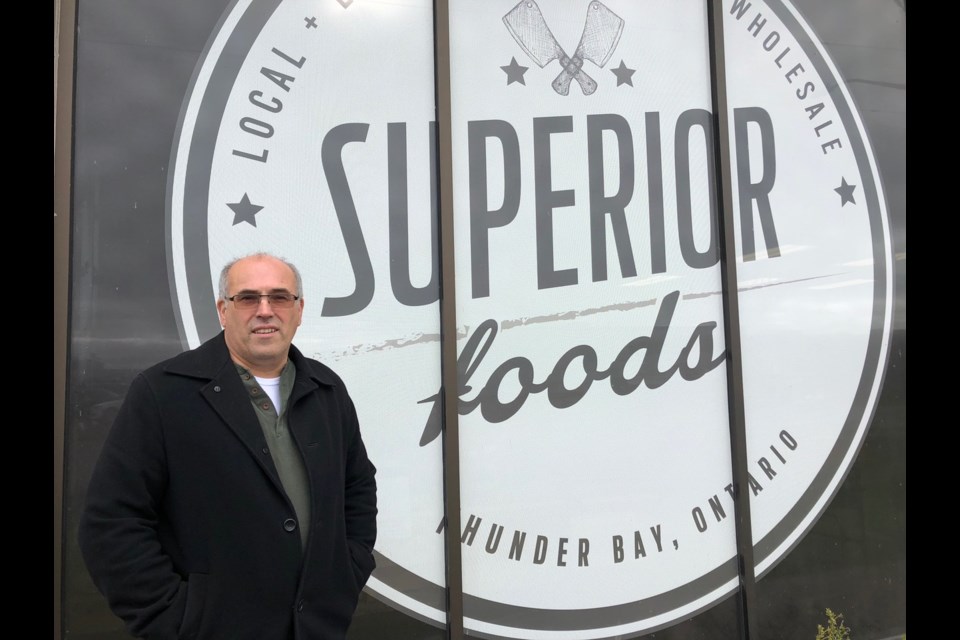For Luis Alves, the past year has been eye opening. As a small business owner in the food industry, the president of Superior Foods has watched the pandemic unravel supply chains. At the same time, Alves says, he’s been in the position to use his food retail and distribution business to ensure the community stays fed.
“We’re passionate about creating a regional food system that is sustainable,” he says. “But this pandemic really showed us that there is a need for a food hub in our region. We were what people were able to fall back on when global supply chains got broken.”
Throughout the pandemic, Superior Foods shipped up food orders to a handful of northern First Nation communities, donated product to the local food banks and also stored some of their goods when they didn’t have the space. Alves says he’s also noticed more people have stuck to shopping local and choosing his business when it’s been time to stock up on groceries. He explains that because he sources the bulk of his product from regional producers, his shelves weren’t bare compared to box stores that receive shipments from outside of the country or from large factories. Sales this year, Alves says, have been high enough to compensate from any losses experienced last year. And so much so, that he’s recently hired two extra people to help keep up with current demand.
The business, formerly known as Frank’s Locker Service until 2015, sells meat, produce, essential dried goods as well as anything from toilet paper to plastic cutlery. It also offers a 24-hour wild game processing service. And while Superior Foods has been part of the Thunder Bay commerce scene for more than five decades, Alves has taken a more conscious effort to support a larger number of local farmers in more recent years. He just hopes that the collective effort he’s recently been seeing doesn’t fizzle out.
“Local food is not something that is there to be relied on when a disaster happens,” he says. “We need to keep these businesses alive and ensure that we support them to keep our economy going, but also so that they are here to stay if we have to deal with future challenges.”
Even before the pandemic, Alves says he took on a role as a sort of ambassador for local producers. He plans to continue to do so and educate the Thunder Bay and surrounding community about the importance of knowing where their food comes from and supporting local. In his mind, it’s one way to keep the food system sustainable for Northwestern Ontario.
In that same vein, he hopes that Superior Foods will be a long-term distributor of affordable, locally produced goods to First Nations communities in remote Northwestern Ontario. But all in all, he is hopeful for the future of Superior Foods and its ability to make a lasting impact on Thunder Bay and the surrounding areas.



